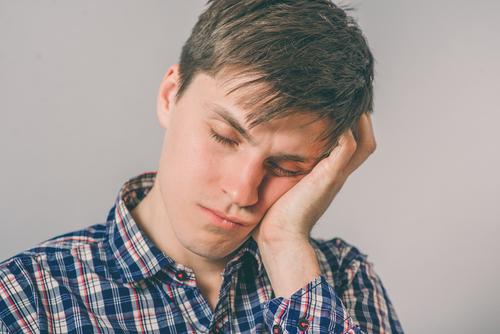The term “nodding out” refers to the peculiar physical reaction to opioid intoxication in which someone is half asleep and half awake, constantly nodding their head in and out of each state.
It Starts After Getting High
Heroin enters the bloodstream with a rush, hurling itself toward key receptors in the brain. Dopamine receptors create sensations of euphoria and pleasure, which is part of what many heroin addicts seek in their compulsive use of the drug. Opioid receptors create the feelings of analgesia, warmth, and numbness that opioid users also seek. After the immediate rush of euphoria, which gets shorter and shorter as tolerance in addiction grows, there is a long period of time where someone is essentially in the void of opioid intoxication. In between states of being practically asleep and somewhat awake is that state known as “nodding out”. Similar to a toddler fighting to stay awake despite their exhaustion, someone overly intoxicated on opioids will fall over, let their head droop, and startle awake when they start to doze off.
What Causes Nodding Out?
Heroin, as it is an opioid and analgesic, is also a sedative. Carfentanil, for example, a powerful synthetic opioid, is used as an animal tranquilizer. Combined with a detachment from good judgment, cognitive functions, physical sensations, and more, the sedative creates a deep sleep like state. Once someone falls completely asleep or unconscious on heroin, it can be difficult to wake them back up- this is an opioid overdose in its earliest stage.
Nodding Out Can Cause Overdose
During this sedated and intoxicated phase, it is not uncommon for people to overdose. Falling asleep and unable to act within their autonomy, they can lose consciousness completely. Problematically, one of the other side effects of opioid intoxication is shallow respiration, meaning practically nonexistent breaths. Unaware to the fact that their breathing is ceasing, it is possible for someone to simply stop breathing. The brain can typically last 30 minutes or more without oxygen before there are detrimental consequences, including death.
Heroin addiction does not have to be the final chapter in your story. If you or a loved one are struggling with addiction to heroin or any other opioid addiction LEAD Recovery Center is here to help you turn a new page. For more information on our extended care treatment programs for addiction and dual diagnosis issues, call 1-800-380-0012.


